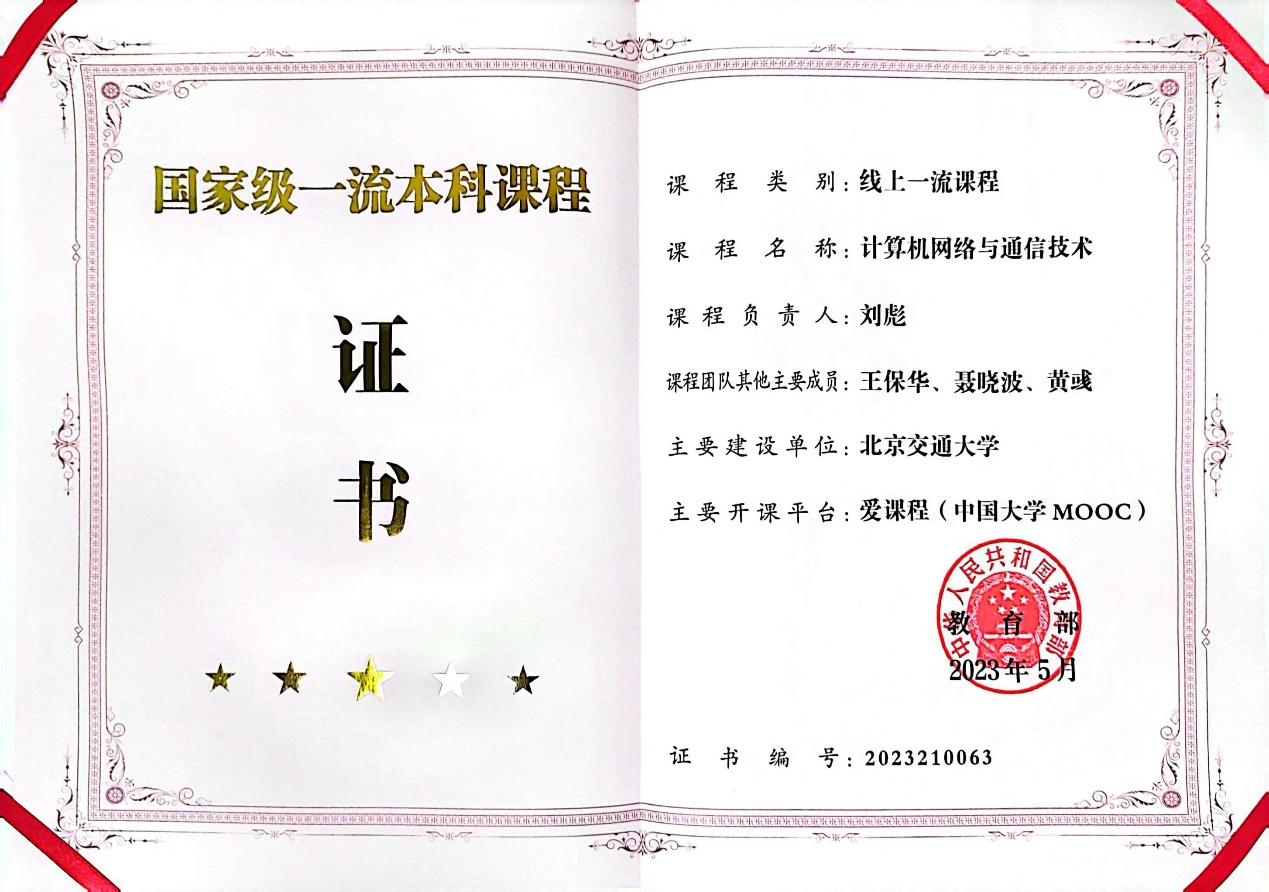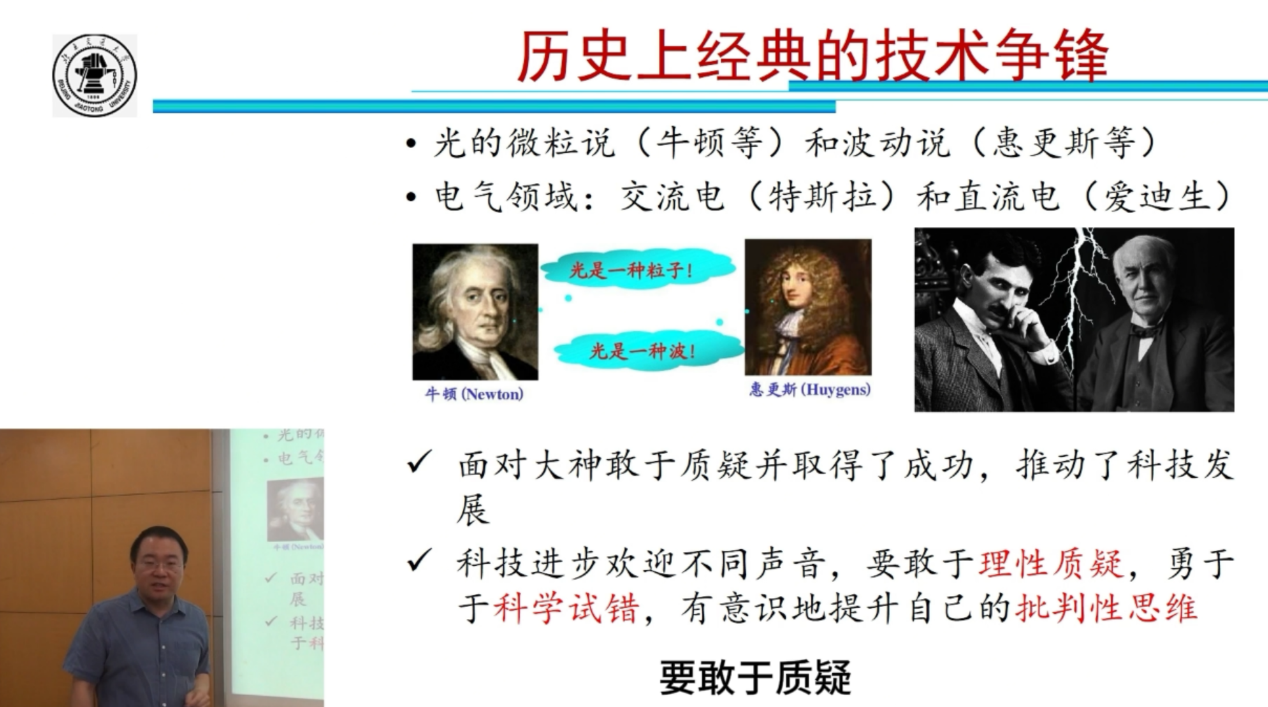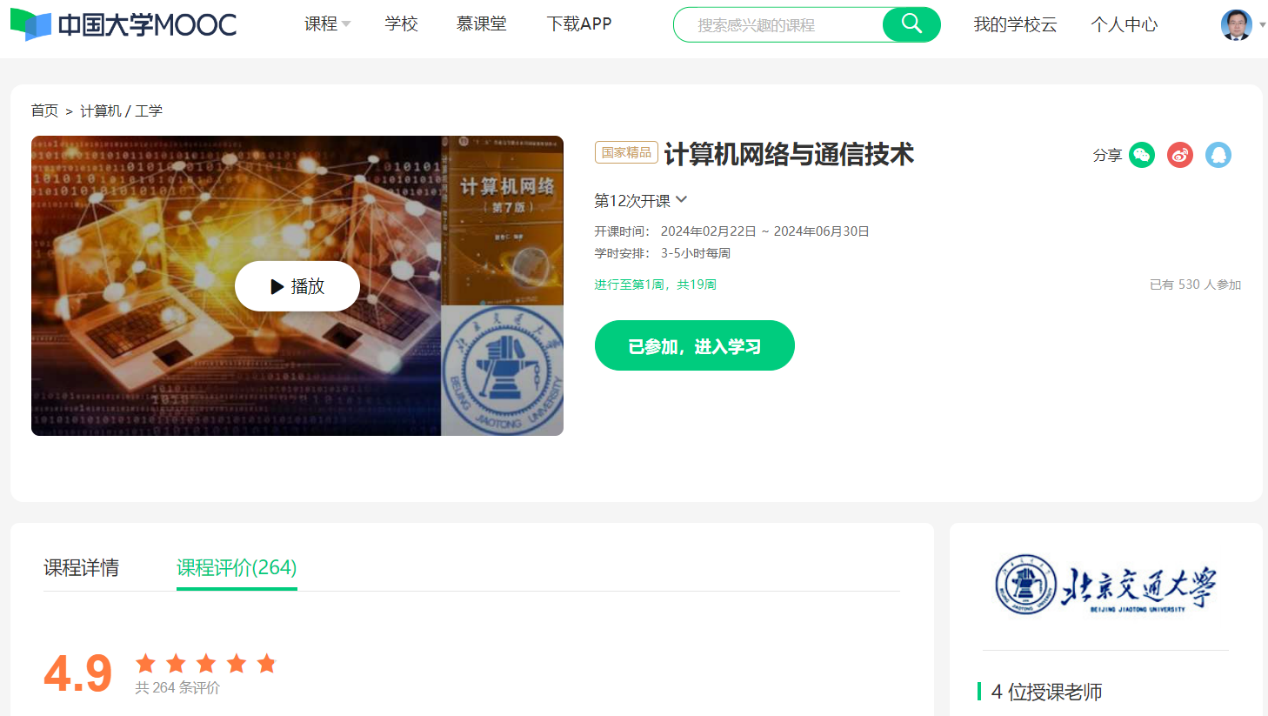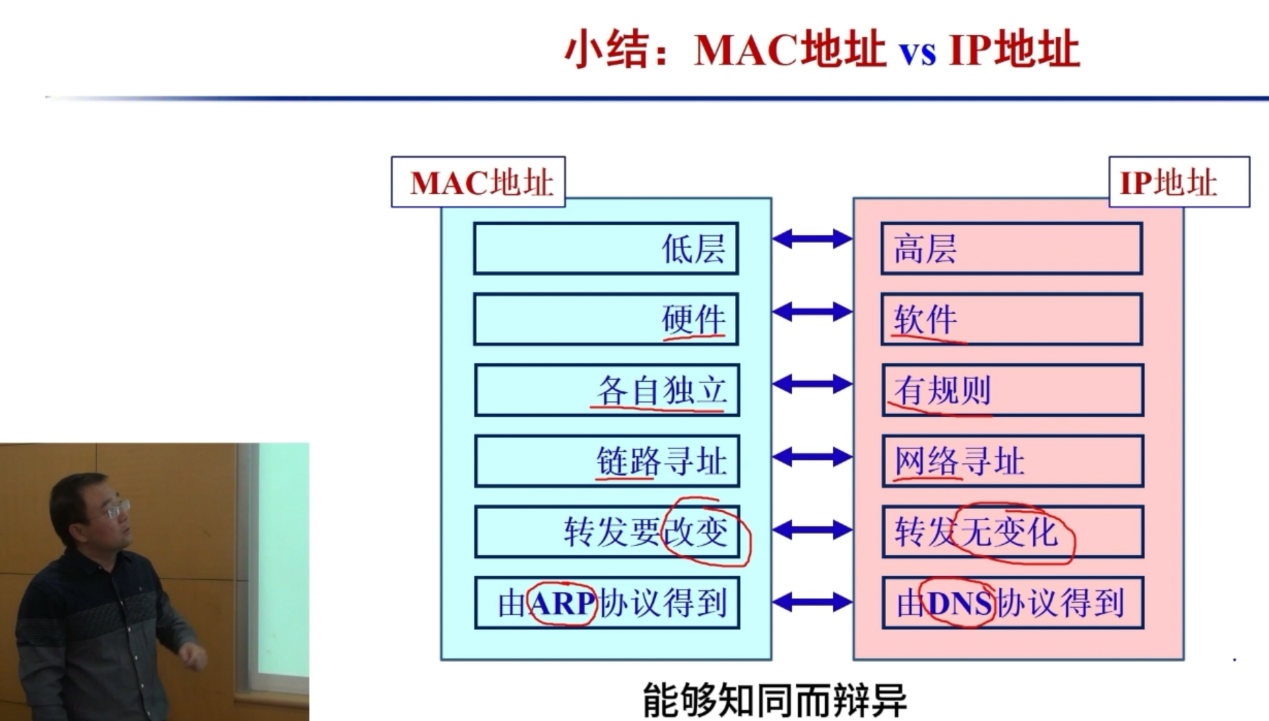I. Course Introduction
Computer Networks and Communication Technology was recognized as a National First-Class Undergraduate Course (online) in the second batch in 2023. As an important professional course designed for learning, designing, managing and building powerful communication application systems, it is one of the compulsory professional courses for Computer Science, Network Engineering, Software Engineering and related majors, and also one of the core courses for non-computer engineering majors.

This course is an optional professional development course for Electrical Engineering and Automation majors. Based on students' prior learning of College Computer Fundamentals, Digital Electronic Technology and other courses, it helps them systematically establish a theoretical system of computer network communication. Students will master the architecture of computer networks and the basic principles of data communication, proficiently perform basic network operations, and be able to apply the learned knowledge to other industrial control networks through further study. Organized around the framework of computer network architecture, the course comprehensively introduces the working principles of each layer of computer networks, integrating new network development technologies and practical scientific research content. In-class experiments focus on currently commonly used network technologies, strengthening students' analytical ability, practical operation ability and teamwork spirit. It lays a foundation for subsequent courses such as Fieldbus and Industrial Control, Professional Comprehensive Design, and Data Communication and Control Networks.
II. Course Features
1. Classroom Education for Students' All-Round Development
Three levels of ideological and political education are proposed:
Cultivate innovative awareness, professional quality and engineering ethics of engineering students.
Strengthen socialist core values, dialectical materialist thinking, and correct world outlook and outlook on life.
Foster awareness of "Four Matters of Confidence" and a community with a shared future for mankind.
Closely combined with knowledge points, a large number of ideological and political education elements corresponding to the three levels are integrated into the in-class videos. For example:
Conduct confidentiality and anti-fraud education in conjunction with network security.
Analyze the phenomenon of "cramming before exams" in the context of internet addiction.
Introduce cases of the struggle between science and ignorance through the initial misunderstanding of the concept of "ether", guiding students to enhance critical and innovative thinking.
Present the dispute between Edison's direct current and Tesla's alternating current by comparing the development of virtual circuits and datagrams, allowing students to feel inspired by great scientists while understanding the promotion of social development by different viewpoints.
Discuss scientific foresight in response to the exhaustion of IPv4 addresses, extending to the advance deployment of electric vehicles to solve energy and environmental issues, and guiding reflections on a community with a shared future for mankind.

2. Continuous Improvement with Two Popular Styles
Since the 2nd session, in-class recorded videos have been added, providing a real classroom environment and a collaborative learning atmosphere. The explanations are vivid, in-depth yet easy to understand, and highly interactive, further encouraging students to participate in online discussions. The two styles (in-class and studio-recorded) coexist with clear classification, allowing learners to choose according to their personal habits.
The 2nd session added 41 videos and 3 courseware, increased the overall difficulty, and integrated a large number of educational elements.
The 4th session launched SPOC for blended teaching.
The 5th session reorganized and added 65 courseware.
The 6th session added 4 experimental videos and 15 review questions, condensing learning objectives in depth for each chapter.
It has been widely adopted as a SPOC resource by 37 universities, benefiting 3,758 on-campus undergraduates.

3. Outcome-Oriented to Enhance Course Challenge
Diversified teaching methods are adopted, integrating cutting-edge engineering technology cases and focusing on cultivating analytical ability. The training of solving complex engineering problems runs through the entire course.
For example:
Progressively put forward four questions to guide students' active thinking on the CSMA/CD protocol through heuristic teaching.
Guide students to "recognize similarities and distinguish differences" through comparative teaching of MAC addresses and IP addresses.
Extend to ASCII from frame delimitation.
Guide students to think about adaptive improvement of knowledge points based on identifiers in different contexts such as network attacks, the Internet of Things, and IPv6.
Expand the gradual improvement process of protocols and algorithms, allowing students to experience the mental journey of scientists in the process of protocol improvement.
Carefully design 3 experimental explanations to enhance practical ability.

III. Course Application Effects
1. Application in the University
During the pandemic, in the 3 sessions corresponding to the offline courses of Beijing Jiaotong University, more than 230 on-campus undergraduates participated in online learning each session. Blended teaching was realized in the form of SPOC combined with the university's offline courses.
As a powerful supplement to the university's offline classroom teaching, the course helps students make up for knowledge gaps, further stimulates learning autonomy, and exercises their ability to explore practical problems. In the blended teaching process:
Teachers assign pre-class questions and require students to conduct independent online learning based on MOOC.
Key content is taught in class, with problem discussions and expansions carried out under the teacher's guidance.
2. Application in Other Universities and Among Social Learners
In the spring semester of 2020, 37 domestic universities widely adopted this course as a SPOC resource, benefiting 3,758 students. By the end of 2023, the number of registrations exceeded 40,000. Each session attracts a large number of undergraduates from other universities, as well as teachers from universities and vocational colleges.
IV. Learner Evaluations
By the end of 2023, a total of 264 learners had given a comprehensive rating of 4.9 out of 5 points, confirming the course's teaching ideas, involved scientific research cases and teaching effects, and reflecting the popularity of in-class teaching. Some comments are as follows:
"Learning the design ideas of Internet protocols is more important than learning the protocol content. What Teacher Liu said makes a lot of sense!"
"It allows ordinary learners who have no chance to study in these universities to gain the most valuable knowledge."
"The teachers give excellent lectures, especially the in-class teaching. Some difficult knowledge points are explained in a simple and in-depth way."
"The cases taught by the teachers are very vivid, combining textbook knowledge with real life."
V. Course Link
https://www.icourse163.org/course/NJTU-1003538129?tid=1472098535



